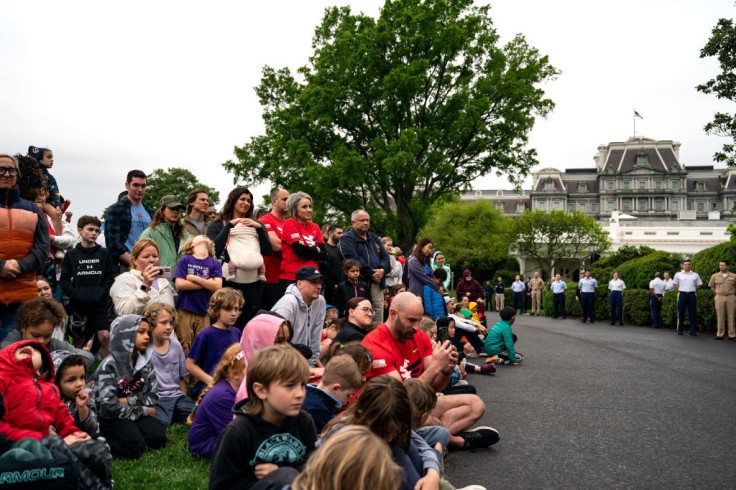
The child care crisis among U.S. military families is facing challenges with affordability and accessibility.
The child care problems have since been exacerbated by the pandemic, which saw over 100,000 workers exit the child care industry and more than 16,000 child care centers permanently close. However, for military families, these problems are even more severe due to their unique lifestyle and demands.
The repercussions of these shortages are not only straining families but also affecting the nation's ability to retain soldiers, potentially threatening military readiness.
Military Child Care System Under Pressure
According to Francisco Jamison, chief of military programs and strategy for Child Care Aware of America, the gravity of child care shortage is now deeply affecting military families, putting a strain on marriages and re-enlistment.
Since Congress mandated the establishment of a formal child care system within the Defense Department in 1989, the Pentagon has developed the largest employer-run child care operation in the United States.
This system provides subsidized care to over 200,000 children. Despite its vast reach, military child care programs have not been immune to the post-pandemic workforce shortages. Currently, around 9,000 children are on extensive waitlists for military-run child care centers.
Military families find themselves with limited alternatives. Private day cares, also grappling with staffing shortages, often have waitlists stretching from one to two years. This timeframe is impractical for families who frequently relocate on short notice. Hiring a full-time babysitter presents another challenge due to the substantial financial burden it places, particularly on lower-ranked service members.
A survey by Blue Star Families, a nonprofit advocating for military households, underscores the depth of the problem. One-third of active-duty spouses reported an inability to secure the necessary child care to work, which often forces families to live on a single income.
Kathy Roth-Douquet, CEO of Blue Star Families, remarked, "In the 21st century, working-class and middle-class Americans need two incomes to meet their family goals. Employment is the No. 1 concern for military spouses when they say what their concerns are about their current lifestyle, and it's a top reason why people would consider leaving the military prior to retirement."
Legislative Proposals to Alleviate the Child Care Challenges for Military Families
The Army has been particularly proactive in addressing the child care shortage. Lt. Gen. Kevin Vereen, who oversees the Army's child care operations, pointed out that approximately 23% of its child care positions remain unfilled, down from 37% in 2022.
To attract more workers, the Army has introduced recruitment bonuses of around $2,000 and increased wages to between $18 and $33 per hour. Additionally, the Army offers discounted child care for workers and access to lower-cost groceries at base commissaries.
Weekend child care services have also been initiated in 20 states for Army Reserve and National Guard members.
Lt. Gen. Vereen acknowledged a significant hurdle: the military's rigorous hiring process. Prospective child care workers must pass a background check and obtain clearance to work on a base, extending the hiring timeline by one to two months. This delay can deter potential employees who receive quicker offers from other employers.
Similarly, the Air Force is addressing the issue by providing free tuition for one child and a 25% discount for additional children of child care workers.
The Air Force has also proposed a $40 million investment to construct new facilities and expand existing ones to accommodate more children. Legislative efforts are also underway. A Senate bill aims to help child care providers near military bases improve their staffing.
Additionally, a House bill proposes funding child care for military spouses actively seeking employment, which could alleviate financial pressures and enable dual-income households.
As military families continue to face these substantial child care challenges, the combined efforts of the military branches and legislative bodies are crucial in working toward sustainable solutions.